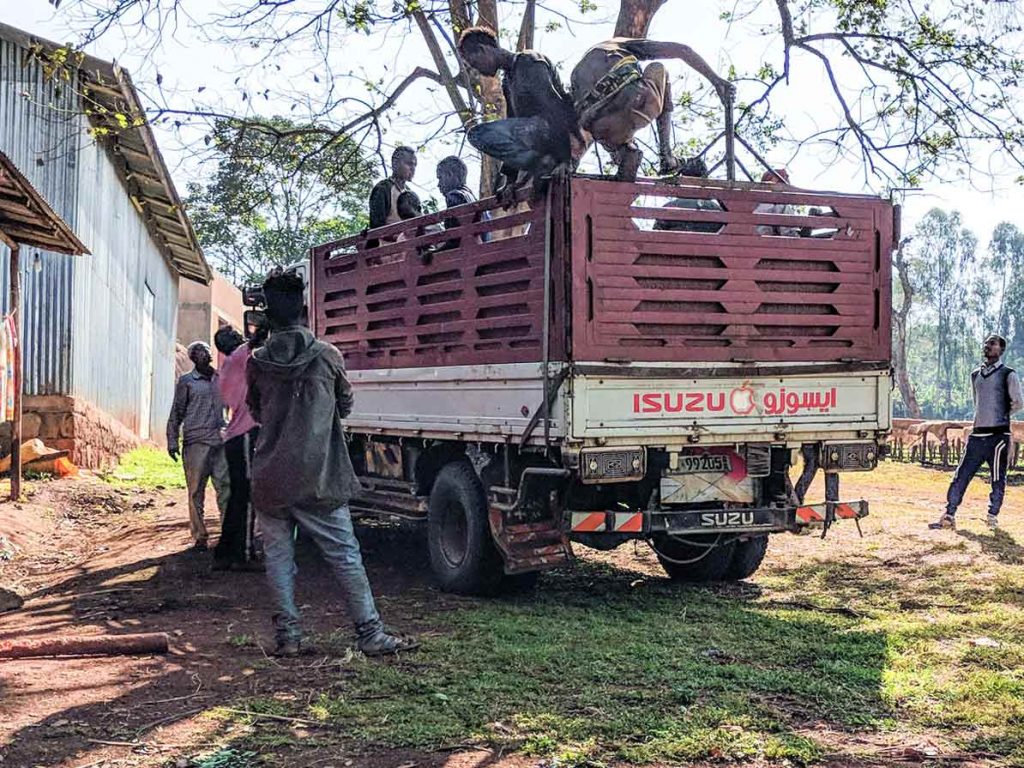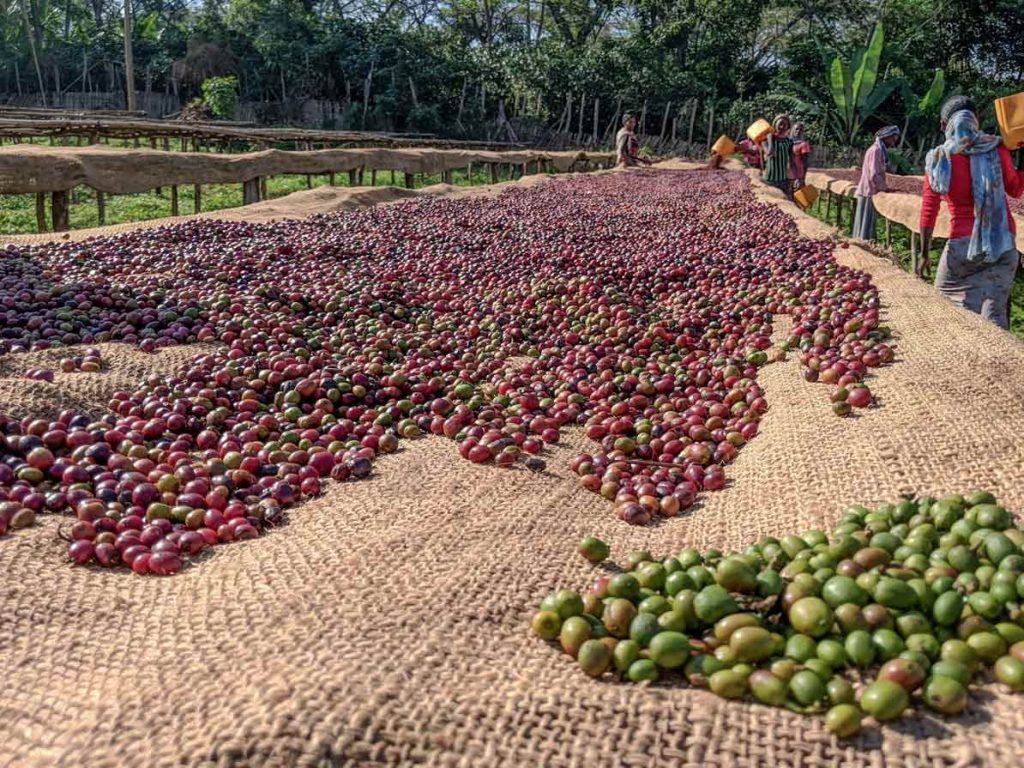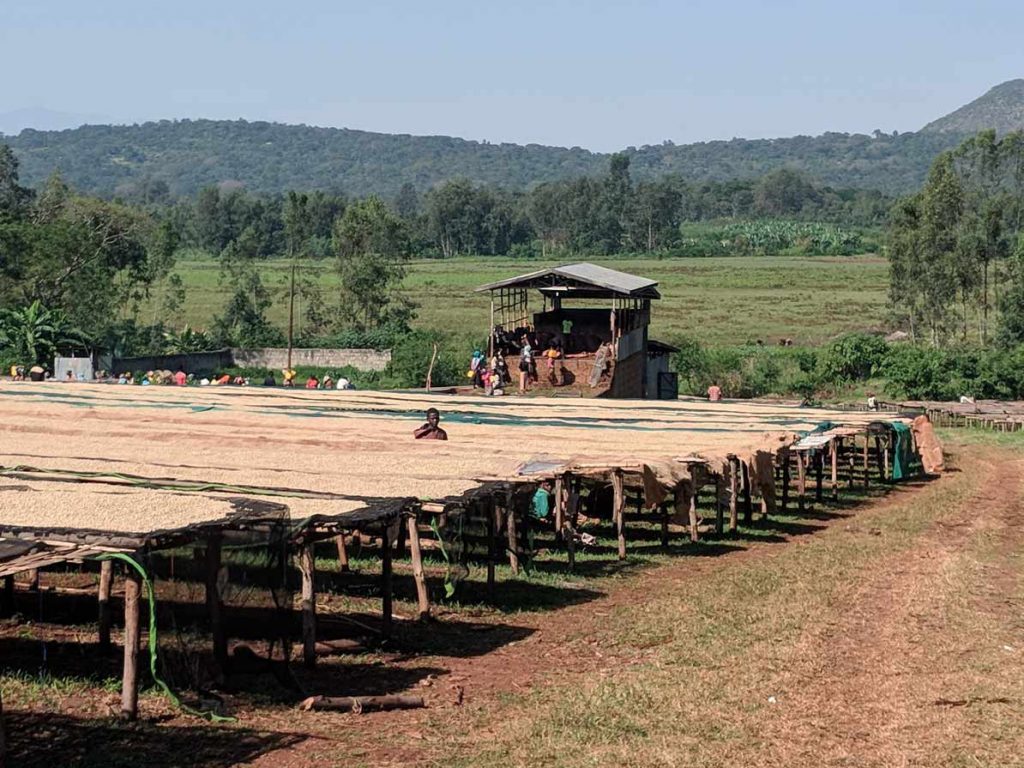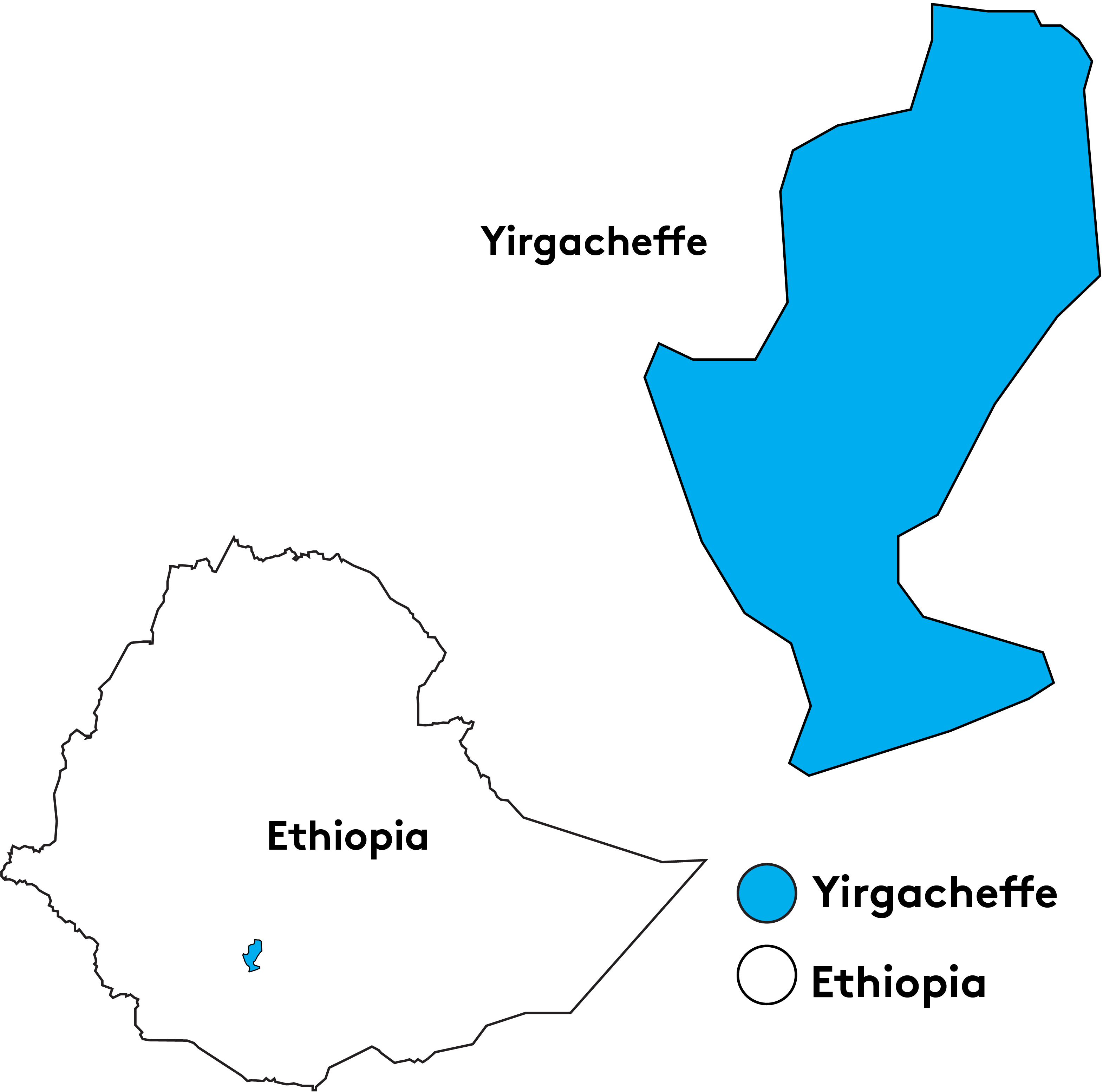Production and Processing
The Chelelektu washing station was built in 2010 and processes up to 950,000kg of ripe coffee cherries each year from its 363 contributing smallholders who bring their ripe cherries for processing. Farmers around Chelelektu have trees at elevations ranging from 1300-2200 meters above sea level, making it one of the washing stations with coffees from the widest range of elevations in Yirgacheffe.
Since 2014, the washing station has improved its infrastructure and processes coffee with fresh, clean water with a pH of 8.5 from the small springs and streams that surround the washing station. After depulping, Washed coffee ferments for 36-72 hours in 12 cement fermentation tanks. Coffees are dried for 18 days on 134 raised beds in the sun across the washing station’s almost 3 hectares of land at 1700 masl. The Chelelektu washing station is named for the Chelelektu kebele, or town, where it is located in the Kochere district of the Yirgacheffe coffee area of the Gedeo Zone.
Dry Milling
Coffee is prepared for export at Tracon Trading’s coffee cleaning and storage plant on 30,000 sq meters of land in Addis Ababa. The plant is equipped with modern Pinhalense coffee processing machines and a Buhler Z+ color sorter. The machine has the capacity of processing six tons per hour. Beans pass through a final hand sort on conveyor belts. The plant’s six storage silos have a capacity of roughly 15,000 metric tons. The warehouses are clean, with ample lighting and ventilation, which are ideal for maintaining the quality of the coffee.
Coffee Production in Yirgacheffe
Coffee grown in the many districts and kebeles of the Gedeo Zone is often referred to as Heirloom varieties, many of which were propagated and distributed to farmers in the last 40 years. Read more about common Ethiopian coffee varieties. Trees grow in red brown fertile soil under the shade of many tree species including Bibira, Cordia Africana, and the subsistence crop Ensete ventricosum.
In the southern region of Ethiopia, farmers pick coffee selectively, harvesting only ripe cherries individually by hand. Pickers rotate among the trees every eight to ten days, choosing only the cherries which are at peak ripeness.
Many pickers average approximately 100 to 200 pounds of coffee cherries a day, which will produce 20 to 40 pounds of coffee beans. Each worker’s daily haul is carefully weighed, and each picker is paid on the merit of his or her work. The day’s harvest is then transported to the processing plant.
Read more about Ethiopia’s coffee regions.



